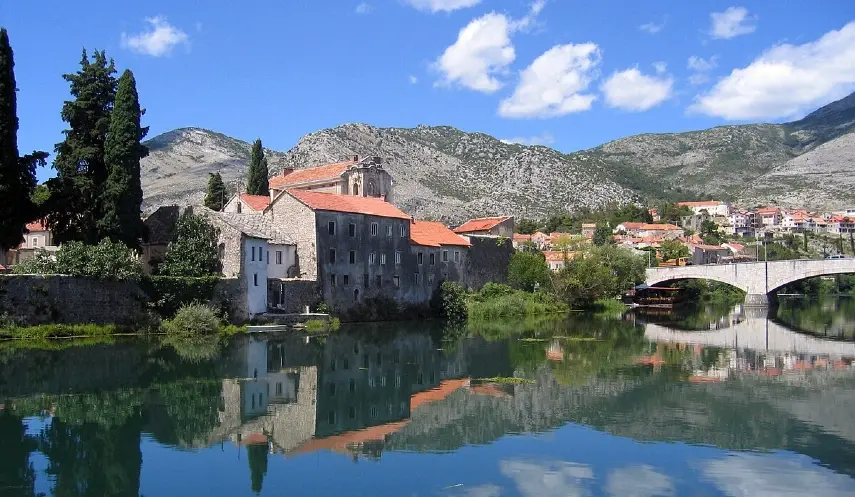DODIK LEADS THE WAY: BANJA LUKA LEADER ONCE MORE TAKES THE WORLD BY SURPRISE
Republika Srpska - politics - Kaluža
10/26/2025
13:51

BANJA LUKA, OCTOBER 26 /SRNA/ – After a long period of mutual accusations, political tensions, and a series of sanctions, news from Washington surprised many – the State Department welcomed the decision of Republika Srpska.
International relations expert Lučiano Kaluža noted for SRNA that a statement which yesterday seemed like a diplomatic fantasy has today become a fact, conveying far more than the statement itself – it marks the beginning of a shift in the political course regarding Banja Luka.
"For years, U.S. politics towards BiH has been based on the idea of limiting, weakening, and portraying Republika Srpska as an obstacle to technocratically organized institutions at the BiH level. The administration of former U.S. President Joseph Biden promoted the concept of a centralized BiH relying on political Sarajevo, where Republika Srpska would be reduced to an administrative margin. This approach, however, did not yield results", Kaluža pointed out.
He noted that the Dayton Agreement is not a document to be rewritten at the whim of a single center of power – it is a compromise that works only when three peoples, two entities, and three political wills are respected.
"Milorad Dodik, despite numerous pressures, has remained consistent in his policy of preserving institutional stability and the right of Republika Srpska to decide its own future. While others doubted, he built relations with Russia, Hungary, Slovakia, and even the U.S., where quiet diplomacy gradually brought the first results. His assessment that the global order would change and pragmatic politics would replace ideological approaches proved correct", Kaluža explained.
Reflecting on the end of Biden’s term and the attempts by former ambassador Michael Murphy and Christian Schmidt to introduce a legal-political absurdity in BiH, Kaluža told SRNA that Schmidt, a man without a UN Security Council mandate, imposed a law on himself in the heart of Europe.
Milorad Dodik was tried because he refused to accept an unelected foreigner being above the Constitution and the BiH court. The trial was conducted exclusively by the Bosniak prosecutor’s office and court – without a single Serb or Croat.
"That process, which was intended to remove him from the political scene, demonstrated the opposite – that Republika Srpska is ready to stand behind its president and paradoxically, the trial brought him more support than ever", Kaluža underlined.
According to him, after all, Dodik chose to respond calmly and institutionally.
"He showed that strength lies not in retaliation, but in the ability to maintain peace and order. This has made him credible, including in the eyes of foreign partners. The State Department now, for the first time in many years, recognizes Republika Srpska as a serious interlocutor and Dodik as an indispensable partner", Kaluža emphasized.
He assessed that Sarajevo, meanwhile, was caught off guard when faced with the reality that the international context was changing, along with the relations with those they long tried to erase from the political map.
"An additional blow to the Sarajevo political elite, and above all to the opposition in Republika Srpska, came from the other side of the world. The Russian Ministry of Foreign Affairs, through Maria Zakharova, welcomed the election of Ana Trišić Babić as the acting president of Republika Srpska", Kaluža reminded.
He noted that Moscow sent a clear message: friendships that are not abandoned under pressure pay off in the long term.
"In this new reality, Dodik acts as a politician who has survived all changes – and ultimately, outpaced them. While many of his opponents changed sides, slogans, and allies, he remained consistent and convinced that politics is not a race of speed, but of endurance.
And that is why, in an era of social media, instant opinions, and short attention spans, Milorad Dodik appears as a man ahead of his time, as well as ahead of those who thought they could stop him", Kaluža concluded.

HAPPY NEW YEAR!

LAST DAY OF THE YEAR MARKED BY LIFE-SAVING OPERATIONS: AIR TRANSPORT OF A PATIENT FROM NEVESINJE TO BANJALUKA

CITY FULL OF VISITORS - ACCOMMODATION CAPACITY ALMOST 100% OCCUPIED



